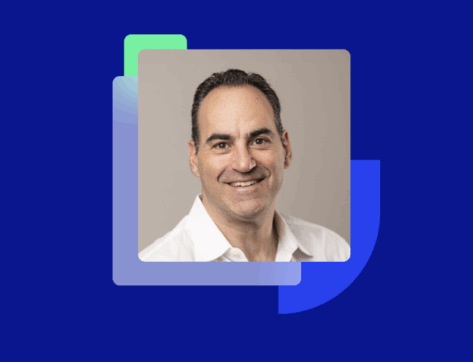Hum-an Stories: Q&A with Chief Marketing Officer Scott Brown
This interview is part of Hum-an Stories, a Q&A series with Hum Capital leadership providing a look under the hood at what drives Hum and its funding platform, the Intelligent Capital Market.
Scott Brown is the Chief Marketing Officer (CMO) at Hum Capital. As CMO he oversees all marketing and communications and leads a team of marketers working to drive brand awareness for Hum and bring more companies raising capital onto the Intelligent Capital Market.
Prior to joining Hum, Scott worked up and down Silicon Valley at Facebook, Google, and Cisco in a variety of enterprise marketing roles before running marketing for Sapphire Ventures — a $10+ billion venture capital firm.
In this Q&A, Scott discusses why he joined Hum to help reinvent the fundraising process, advice for founders fundraising in the current market downturn, and what success will look like for Hum at the end of this year.
Q: Why did you join Hum to lead the marketing team? What was exciting about the team and mission?
I’ve spent my entire career in Silicon Valley and experienced firsthand the incredible economic value that can be created by private capital. I was then lucky enough to switch gears and experience how venture capital firms were funding the next wave of game changing private companies. While in venture, I was surprised by how many decisions on who gets funded are still based on factors such as where the founder went to school, or who they have relationships with.
Hum’s vision to make private transactions more transparent and data-driven was appealing to me because:
- I believe that’s a more efficient way to allocate capital and create greater value for society
- That it would level the playing field and keep unconscious biases from keeping great companies from getting the capital they deserve
Q: In your career, you’ve worked at Big Tech companies such as Google, Facebook, and Cisco. What lessons and skills did you learn at those companies that you apply daily to your role at Hum?
Solve for today’s problems, but build for scale. No matter what corporate function you’re in, you have to balance the near term priorities with building your team, processes, and infrastructure for long-term success. While we need to move fast, I always encourage my team to take that extra 10-20% of time and effort to truly solve an issue, and not just put in place a short-term hack.
Of course, sometimes you have to put a Band-Aid on a situation, but I always want to make sure we consciously acknowledge that we’re doing that so that we all realize we’re going to have to come back at some point and finish the job.
Q: With the current market volatility and rising interest rates, there is growing concern for companies raising capital. What is your advice for founders and CEOs on navigating the current climate?
There is a lot of great advice out there already. My advice is to focus on the fundamentals, and make sure you’re continuing to deliver value for your customers. At Google, we were taught “Know the customer. Know the Magic. Connect the two.” In uncertain times like this, I think every marketer — anyone in business — needs to get back to the basics of really understanding their customer, what your business can deliver to “surprise and delight” them, and figuring out how to connect them.
Q: Fast forward to December 2022. What will success look like for Hum?
Candidly, one of our bigger obstacles in moving to data-driven investing has been getting companies and investors to change their old behavior. While we’re seeing this change overtime, especially with forward-looking investors like RevTek Capital or Peak Rock Capital, we’re talking about shifting the way a multi-trillion dollar industry has operated for decades.
My definition of success for Hum is to see an acceleration of the number of deals done through our Intelligent Capital Market. Last year we facilitated more than $400 million in private financings through the ICM and I’d like to see that volume double this year (even with the current uncertainty and the pullback by some investors).
Q: Now for a fun question. We can’t end without hearing about your cooking skills and your appearance on a Gordon Ramsey reality cooking show! Tell us more about your culinary interests and how that happened?
I was always hungry growing up, so when I was around 11 my mom handed me a skillet and said I better learn to cook or I was going to be starving all of the time. That’s how in addition to eating, I learned to love to cook. Years later, we were living in London when I saw an open casting call to appear on the pilot season of Culinary Genius America. Rather than shooting the series in LA, to save money they filmed it in London using Americans living there. I made it through casting and the preliminaries to end up on the show for three rounds of culinary challenges with a secret ingredient. Luckily for me, the secret ingredient ended up being beef, and I ended up getting second place. It was stressful, but so much fun.


